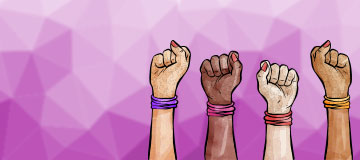


Cognizant of the fact that India has one of the highest fatalities from road accidents in the world, Honda 2Wheelers aims to work toward a “collision-free mobile society”. We at Honda proudly operate on a 4S dealership model encompassing sales, services, spares and safety. It is with this ideology that we have designed our CSR interventions in road safety in alignment with the Sustainable Development Goal 3: Good Health and Well Being. Since 2001, the company has ensured safe commute to over 10 lakh people across all age groups by providing access to superior technology and creating an enabling environment.


While rapid economic development and urbanization should be seen as positive results of investing in the Indian economy, the unfortunate reality is that, India's vast natural resources and environment are degrading at a rapid rate. From improper planning of development activities and setting up of polluting industrial units to rigorous agricultural practices and incongruous consumption patterns have been contributing factors towards creating an imbalance in the relationship between people and ecosystems.
As responsible and law abiding corporate citizens, we believe our task lies in preserving global environment through recycling and conserving at every stage of our products life cycle by enhancing research, design, production, sales and disposal. It gives us immense joy to say that all Honda plants have received ISO 14001:2015 Standard certification by December 2017. However, after achieving standards of excellence in resource management and conservation within our organisation we wished to expand our vision of 'Zero greenhouse emissions and unhindered mobility amongst our communities. Thus, we designed our outreach campaigns in alignment to United Nation's 2030 Agenda for Sustainable Development. To build a sustainable and greener future we have aligned our CSR initiatives with Sustainability Goal 6 of Clean Water and Sanitation, Goal 13 of Climate Action and Goal 15 of Life on Land.


The aim for 2030 is a healthier world. Improvements in health outcomes has been embedded as a national development priority in India's political agenda for decades. However, statistics across the health sector in India continue to show the grim reality of challenges faced by a large portion of the Indian population living in rural areas. Basics of quality healthcare and medical services, including accessibility and affordability, continue to be a roadblock towards achieving better health across the country.Moreover, we at Honda 2Wheelers, recognise that health cannot be discussed in isolation. It is an issue that is intricately linked to unclean water and inadequate sanitation. All three aspects have to be addressed as a combined challenge.According to statistics, more than 1 billion people around the world have no access to safe, clean drinking water, and over 2.5 billion do not have adequate sanitation service. Of particular concern is the fact that over 2 million people die each year because of consumption of unsafe water - and most of them are children.
Resonating with the clarion call of “Health for All” under the United Nations' 2030 agenda for Sustainable Development Goals and to strengthen the healthcare system by providing universally accessible, affordable and quality healthcare to all, we at Honda 2Wheelers, have focused part of our CSR programmes towards creating an integrated healthcare model. Our aim is to prioritise health care as a definitive step towards achieving long term sustainable impacts to make our societies healthier, more inclusive, and overall aligned to global goals surrounding health and well-being.


Ensuring inclusive and equitable education, and promoting lifelong learning opportunities for all is essential for sustainable improvement in learning outcomes. Its prominence is enhanced given its role as an outcome multiplier, with its impact percolating to the other Sustainable Development Goals as well. Here at Honda 2Wheelers India, we recognize this role and are mindful of the potential that the access to quality education and skill development has for improving the lives of children. It is with this ethos that we envisaged our education interventions. With our focus on school education and the development of vocational skills, our aim is to ensure that children get a good head-start in their early education and develop relevant skills along the way, to equip them to be gainfully employed and economically empowered in the future.


Women empowerment means empowering women with all their rights they should have in the family, society, school, college and country just like a man. It is to make them able so that they can make own independent decisions for their personal development. The status of women in the Indian society is still backward because of the gender inequality. Women also should be given equal rights like men to really empower them. They should not be treated as weak gender of the society as they occupy almost half population of the country so they are half strength of the country. Women have more patience and effort; they can better develop their country.


Close to 70% of India's population resides in rural areas, however, there remains a yawning gap between rural and urban India with respect to infrastructure, standard of living, and economic empowerment. For the country to reach its development potential, it is imperative to bring rural areas at par with the urban areas through infrastructure development. In view of reducing the rural-urban disparities, government is working with the primary objective of “Sabka Saath, Sabka Vikas”. Resonating with the policies of the government, we aim to provide urban amenities in rural areas. We are making efforts to improve lives of people of villages sustainably by supporting infrastructural development in the villages.


Sports is a vital component for overall development of an individual as well as that of a nation. In recent years, India has showcased tremendous potential in sports. To fine-tune this potential for the global platform, development of a durable and reliable sports ecosystem is needed. To fill this need, the Indian Government has introduced the Khelo India Programme which aims to provide world-class training and infrastructure facilities to talented sports person in urban and rural areas. However, the major challenge is recognising the talent in rural areas of the country. We at Honda 2Wheelers have taken various initiatives to promote sports among the youth, with particular focus on rural areas.